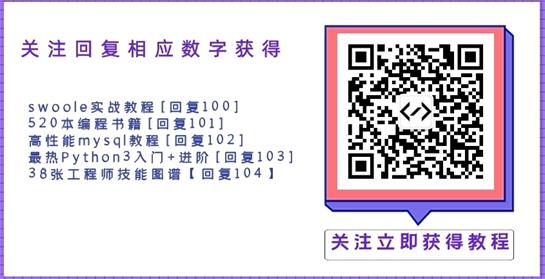什么是Java NIO?
同步非阻塞io模式,拿烧开水来说,NIO的做法是叫一个线程不断的轮询每个水壶的状态,看看是否有水壶的状态发生了改变,从而进行下一步的操作。
Java NIO有三大组成部分:Buffer,Channel,Selector,通过事件驱动模式实现了什么时候有数据可读的问题。
什么是Java BIO?
同步阻塞IO模式,数据的读取写入必须阻塞在一个线程内等待其完成。这里使用那个经典的烧开水例子,这里假设一个烧开水的场景,有一排水壶在烧开水,BIO的工作模式就是, 叫一个线程停留在一个水壶那,直到这个水壶烧开,才去处理下一个水壶。但是实际上线程在等待水壶烧开的时间段什么都没有做。不知道io操作中什么时候有数据可读,所以一直是阻塞的模式。
1、读文件
package com.zhi.test;
import java.io.FileInputStream;
import java.io.FileReader;
import java.io.IOException;
import java.nio.ByteBuffer;
import java.nio.CharBuffer;
import java.nio.channels.FileChannel;
import java.nio.charset.Charset;
import java.nio.charset.CharsetDecoder;
import java.nio.file.Files;
import java.nio.file.Paths;
/**
* 文件读取,缓冲区大小(BF_SIZE)对NIO的性能影响特别大,对BIO无影响<br>
* 10M的文件,BIO耗时87毫秒,NIO耗时68毫秒,Files.read耗时62毫秒
*
* @author 张远志
* @since 2020年5月9日19:20:49
*
*/
public class FileRead {
/**
* 缓冲区大小
*/
private static final int BF_SIZE = 1024;
/**
* 使用BIO读取文件
*
* @param fileName 待读文件名
* @return
* @throws IOException
*/
public static String bioRead(String fileName) throws IOException {
long startTime = System.currentTimeMillis();
try {
FileReader reader = new FileReader(fileName);
StringBuffer buf = new StringBuffer();
char[] cbuf = new char[BF_SIZE];
while (reader.read(cbuf) != -1) {
buf.append(cbuf);
}
reader.close();
return buf.toString();
} finally {
System.out.println("使用BIO读取文件耗时:" + (System.currentTimeMillis() - startTime) + "毫秒");
}
}
/**
* 使用NIO读取文件
*
* @param fileName 待读文件名
* @return
* @throws IOException
*/
public static String nioRead1(String fileName) throws IOException {
long startTime = System.currentTimeMillis();
try {
FileInputStream input = new FileInputStream(fileName);
FileChannel channel = input.getChannel();
CharsetDecoder decoder = Charset.defaultCharset().newDecoder();
StringBuffer buf = new StringBuffer();
CharBuffer cBuf = CharBuffer.allocate(BF_SIZE);
ByteBuffer bBuf = ByteBuffer.allocate(BF_SIZE);
while (channel.read(bBuf) != -1) {
bBuf.flip();
decoder.decode(bBuf, cBuf, false); // 解码,byte转char,最后一个参数非常关键
bBuf.clear();
buf.append(cBuf.array(), 0, cBuf.position());
cBuf.compact(); // 压缩
}
input.close();
return buf.toString();
} finally {
System.out.println("使用NIO读取文件耗时:" + (System.currentTimeMillis() - startTime) + "毫秒");
}
}
/**
* 使用Files.read读取文件
*
* @param fileName 待读文件名
* @return
* @throws IOException
*/
public static String nioRead2(String fileName) throws IOException {
long startTime = System.currentTimeMillis();
try {
byte[] byt = Files.readAllBytes(Paths.get(fileName));
return new String(byt);
} finally {
System.out.println("使用Files.read读取文件耗时:" + (System.currentTimeMillis() - startTime) + "毫秒");
}
}
public static void main(String[] args) throws IOException {
String fileName = "E:/source.txt";
FileRead.bioRead(fileName);
FileRead.nioRead1(fileName);
FileRead.nioRead2(fileName);
}
}
2、写文件
package com.zhi.test;
import java.io.File;
import java.io.FileOutputStream;
import java.io.FileWriter;
import java.io.IOException;
import java.nio.ByteBuffer;
import java.nio.channels.FileChannel;
import java.nio.file.Files;
import java.nio.file.StandardOpenOption;
/**
* 文件写<br>
* 10M的数据,BIO耗时45毫秒,NIO耗时42毫秒,Files.write耗时24毫秒
*
* @author 张远志
* @since 2020年5月9日21:04:40
*
*/
public class FileWrite {
/**
* 使用BIO进行文件写
*
* @param fileName 文件名称
* @param content 待写内存
* @throws IOException
*/
public static void bioWrite(String fileName, String content) throws IOException {
long startTime = System.currentTimeMillis();
try {
FileWriter writer = new FileWriter(fileName);
writer.write(content);
writer.close();
} finally {
System.out.println("使用BIO写文件耗时:" + (System.currentTimeMillis() - startTime) + "毫秒");
}
}
/**
* 使用NIO进行文件写
*
* @param fileName 文件名称
* @param content 待写内存
* @throws IOException
*/
public static void nioWrite1(String fileName, String content) throws IOException {
long startTime = System.currentTimeMillis();
try {
FileOutputStream out = new FileOutputStream(fileName);
FileChannel channel = out.getChannel();
ByteBuffer buf = ByteBuffer.wrap(content.getBytes());
channel.write(buf);
out.close();
} finally {
System.out.println("使用NIO写文件耗时:" + (System.currentTimeMillis() - startTime) + "毫秒");
}
}
/**
* 使用Files.write进行文件写
*
* @param fileName 文件名称
* @param content 待写内存
* @throws IOException
*/
public static void nioWrite2(String fileName, String content) throws IOException {
long startTime = System.currentTimeMillis();
try {
File file = new File(fileName);
if (!file.exists()) {
file.createNewFile();
}
Files.write(file.toPath(), content.getBytes(), StandardOpenOption.WRITE);
} finally {
System.out.println("使用Files.write写文件耗时:" + (System.currentTimeMillis() - startTime) + "毫秒");
}
}
public static void main(String[] args) throws IOException {
String content = FileRead.nioRead2("E:/source.txt");
String target1 = "E:/target1.txt", target2 = "E:/target2.txt", target3 = "E:/target3.txt";
FileWrite.bioWrite(target1, content);
FileWrite.nioWrite1(target2, content);
FileWrite.nioWrite2(target3, content);
}
}
3、复制文件
package com.zhi.test;
import java.io.File;
import java.io.FileInputStream;
import java.io.FileOutputStream;
import java.io.IOException;
import java.nio.channels.FileChannel;
import java.nio.file.Files;
import java.nio.file.Paths;
/**
* 文件复制<br>
* 10M的文件,bio耗时56毫秒,nio耗时12毫秒,Files.copy耗时10毫秒
*
* @author 张远志
* @since 2020年5月9日17:18:01
*
*/
public class FileCopy {
/**
* 使用BIO复制一个文件
*
* @param target 源文件
* @param source 目标文件
*
* @throws IOException
*/
public static void bioCopy(String source, String target) throws IOException {
long startTime = System.currentTimeMillis();
try {
FileInputStream fin = new FileInputStream(source);
FileOutputStream fout = new FileOutputStream(target);
byte[] byt = new byte[1024];
while (fin.read(byt) > -1) {
fout.write(byt);
}
fin.close();
fout.close();
} finally {
System.out.println("使用BIO复制文件耗时:" + (System.currentTimeMillis() - startTime) + "毫秒");
}
}
/**
* 使用NIO复制一个文件
*
* @param target 源文件
* @param source 目标文件
*
* @throws IOException
*/
public static void nioCopy1(String source, String target) throws IOException {
long startTime = System.currentTimeMillis();
try {
FileInputStream fin = new FileInputStream(source);
FileChannel inChannel = fin.getChannel();
FileOutputStream fout = new FileOutputStream(target);
FileChannel outChannel = fout.getChannel();
inChannel.transferTo(0, inChannel.size(), outChannel);
fin.close();
fout.close();
} finally {
System.out.println("使用NIO复制文件耗时:" + (System.currentTimeMillis() - startTime) + "毫秒");
}
}
/**
* 使用Files.copy复制一个文件
*
* @param target 源文件
* @param source 目标文件
*
* @throws IOException
*/
public static void nioCopy2(String source, String target) throws IOException {
long startTime = System.currentTimeMillis();
try {
File file = new File(target);
if (file.exists()) {
file.delete();
}
Files.copy(Paths.get(source), file.toPath());
} finally {
System.out.println("使用Files.copy复制文件耗时:" + (System.currentTimeMillis() - startTime) + "毫秒");
}
}
public static void main(String[] args) throws IOException {
String source = "E:/source.txt";
String target1 = "E:/target1.txt", target2 = "E:/target2.txt", target3 = "E:/target3.txt";
FileCopy.bioCopy(source, target1);
FileCopy.nioCopy1(source, target2);
FileCopy.nioCopy2(source, target3);
}
}
以上就是本文的全部内容,希望对大家的学习有所帮助,也希望大家多多支持自学编程网。

- 本文固定链接: https://zxbcw.cn/post/186475/
- 转载请注明:必须在正文中标注并保留原文链接
- QQ群: PHP高手阵营官方总群(344148542)
- QQ群: Yii2.0开发(304864863)
